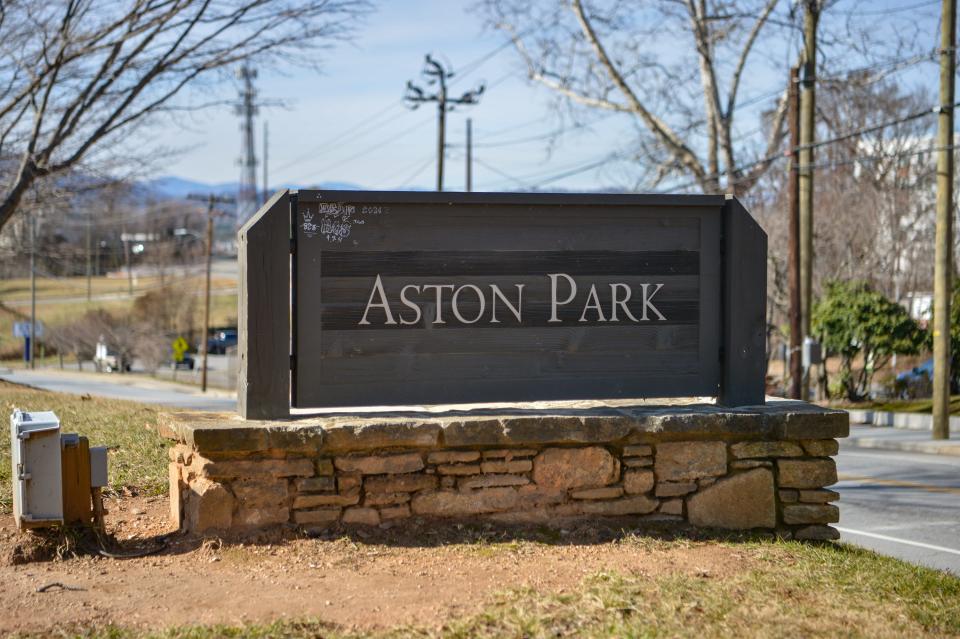Judge denies dismissal of park ban suit, saying Asheville violated protesters' rights
ASHEVILLE - A federal district court judge has ruled there are sufficient facts to support the majority of claims by 15 activists who are suing the city over park bans they say violate their First and 14th Amendment rights.
The American Civil Liberties Union of North Carolina filed a federal lawsuit in spring 2023 on behalf of 15 activists banned from city parks for three years. The ban came after the lawsuit’s plaintiffs were charged with felony littering following a Christmas 2021 protest in Aston Park demanding shelter for the city’s growing unhoused population.

A motion to dismiss the lawsuit in its entirety, arguing the claims are without legal merit, was filed July 13 by the defendants, which include City Manager Debra Campbell, Parks and Recreation Director C. Tyrell McGirt and former Police Chief David Zack.
Chief Judge Martin Reidinger largely disagreed with the defendants in his order filed March 4, denying their motion to dismiss all but two of the ACLU’s claims.
More: ACLU of NC challenges Asheville's park bans against felony littering defendants
In the lawsuit, the ACLU of North Carolina asserts the city’s Park Ban Policy and the bans issued to plaintiffs violate their due process rights by taking away their access to public parks and their ability to conduct their job responsibilities without requiring notice or meaningful hearing.
The complaint also says the ban encroaches on the activists’ First Amendment right to assembly and alleges that the bans constitute retaliation against the plaintiffs for protesting the city’s treatment of unhoused people.
More: NC ACLU: Asheville, police chief, parks director violated protester constitutional rights
Reidinger ruled not to dismiss these claims. However, he did dismiss the ACLU's claims regarding the vagueness of the city's Park Ban Policy.
The lawsuit postulates that the city's policy "encourages arbitrary enforcement" because a wide range of public officials can impose a park ban without notice based on observations "of an immense range of violations and criminal offenses." They claim the policy has an "unconstitutionally vague reach," as stated in an amended complaint filed June 29.
"While the Policy can indeed be triggered by a wide range of violations, all of these violations are otherwise proscribed by city, state and federal laws," Reidinger wrote in his order.
"As such, the Plaintiffs have not sufficiently alleged that the Policy fails to provide adequate notice of what conduct is prohibited because such notice is provided by reference to existing laws and policies."
Jaclyn Maffetore, senior staff attorney for N.C. ACLU, told the Citizen Times March 8 she found this ruling "a little surprising." She noted that, as they wrote in court documents, its "pretty impossible" to find a lot of the park rules.
"As the judge even noted in his order, other people in Asheville littered in the amount that could be considered felony littering and not only weren't charged, they also weren't banned from parks," Maffetore said. "So, whether or not a park ban policy is going to be enforced against somebody seems unknowable."
Reidinger also denied qualified immunity for McGirt, the only government official sued in his individual capacity. The legal principal of qualified immunity, as established by the U.S. Supreme Court, grants government officials performing discretionary functions — which require an element of judgement or choice — immunity from lawsuits, unless the plaintiff establishes a clear violation of statutory or constitutional rights.
Reidinger found that the activists "sufficiently alleged the violation of a clearly established right," and therefore denied qualified immunity.
The city filed a notice on March 5, saying they will appeal the denial of qualified immunity to the Fourth Circuit Court of Appeals. Maffetore said the N.C. ACLU will be fighting against that appeal.

Have the park bans been reversed?
In February 2022, several of the mutual aid volunteers started receiving “restricted access notices,” banning them from all city parks and recreation facilities for a period of three years. These notices were issued under the 2017 Restricted Access to City Parks policy.
Although 10 of the people banned attempted to appeal those bans through a Parks and Recreation appeals process that April, all of the bans were upheld, according to prior Citizen Times reporting.
According to the lawsuit, the bans not only represent constitutional violations, but have impacted daily lives, volunteerism and work.
Several of the 14 were volunteers with a mutual aid organization and relied on city parks to distribute food, supplies and provide aid — something they were participating in biweekly in Aston Park before the protests, the Citizen Times has reported.
"This is definitely a deterrent for activists who want to use parks as a venue to speak out," Maffetore said. "That is obviously a huge public harm — our ability to speak out against our government when we're not happy with what they're doing is core First Amendment speech."
Maffetore also noted that the ban is affecting these people's lives, their ability to work, and to take their children to public parks, "before even being convicted of any crime at all."
In a preliminary injunction filed in October, the N.C. ACLU asked for the bans to be lifted before the case is decided, saying it is violating the mutual aid workers’ constitutional rights and interfering with their work helping the homeless.
That motion is still pending. Maffetore said the timeline for when the judge must file an order on that motion is at the judge's discretion.
More: NC ACLU suit: federal court should lift Asheville park ban now; city seeks dismissal

Sarah Norris, 43, has been outspoken about these impacts. She is among 12 people banned from city parks who still face pending felony littering charges. Norris said she has no next court date set, as confirmed by an online court calendar.
"Ten of us are 'off the calendar' and have been for (about) a year, just an absurd limbo," Norris told the Citizen Times March 8.
A total of 16 people — 14 of whom were banned from city parks for three years — were charged by Ashville Police Department with felony littering and other related felonies following December 2021 protests calling for sanctuary camping at Aston Park. Only three of those criminal cases have been disposed through pleas, according to Maffetore.
Norris said they've brought this lawsuit to do more than reinstate their ability to go to city parks — they want to change city policy.
"Right now, the policy is easily abused, and the judge's decision against the city makes this clear," Norris said.
"In our case, the police department targeted a huge group of people, and then without evidence, due process or any kind of determination that we had done anything wrong, had us banned from public parks for three years with the unquestioning cooperation of the director of Parks and Recreation. We don't want this to happen to anyone else."
Ryley Ober is the Public Safety Reporter for Asheville Citizen Times, part of the USA Today Network. Email her at rober@gannett.com and follow her on Twitter @ryleyober
This article originally appeared on Asheville Citizen Times: Felony littering: Federal judge denies dismissal of park ban lawsuit

